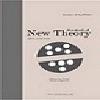EFFECTS OF LONG-TERM TILLAGE SYSTEMS ON SOIL WATER CONTENT AND WHEAT YIELD UNDER MEDITERRANEAN CONDITIONS
– Agricultural practices conserving soil water are needed to sustain agricultural production under changing climate. Long-term effects of six different tillage systems on soil water content (SWC) and wheat yield were investigated in a clayey soil of the Çukurova region, Turkey. The tillage treatments were; conventional tillage with stubble (moldboard plowing) (CT1), conventional tillage with stubbles burned (CT2), heavy disc harrow reduced tillage (RT1), rototiller reduced tillage (RT2), heavy disc harrow zero soil tillage (RNT) and no till or zero tillage (NT). Soil moisture content was measured at different times of the rainfed wheat production season in 2014-2015. Tillage practices had statistically important effects on SWC on 6 February, 9 March, 17 April and 8 May 2015. Although moisture values measured on February, 6 and March, 9 were optimal for plant growth, SWC under conservation tillage practices were higher compared to conventional tillage practices. However, tillage practices had no significant effect on the wheat yield. These results showed that reduced and no-tillage practices can be alternative to conventional tillage practices under Mediterranean conditions
